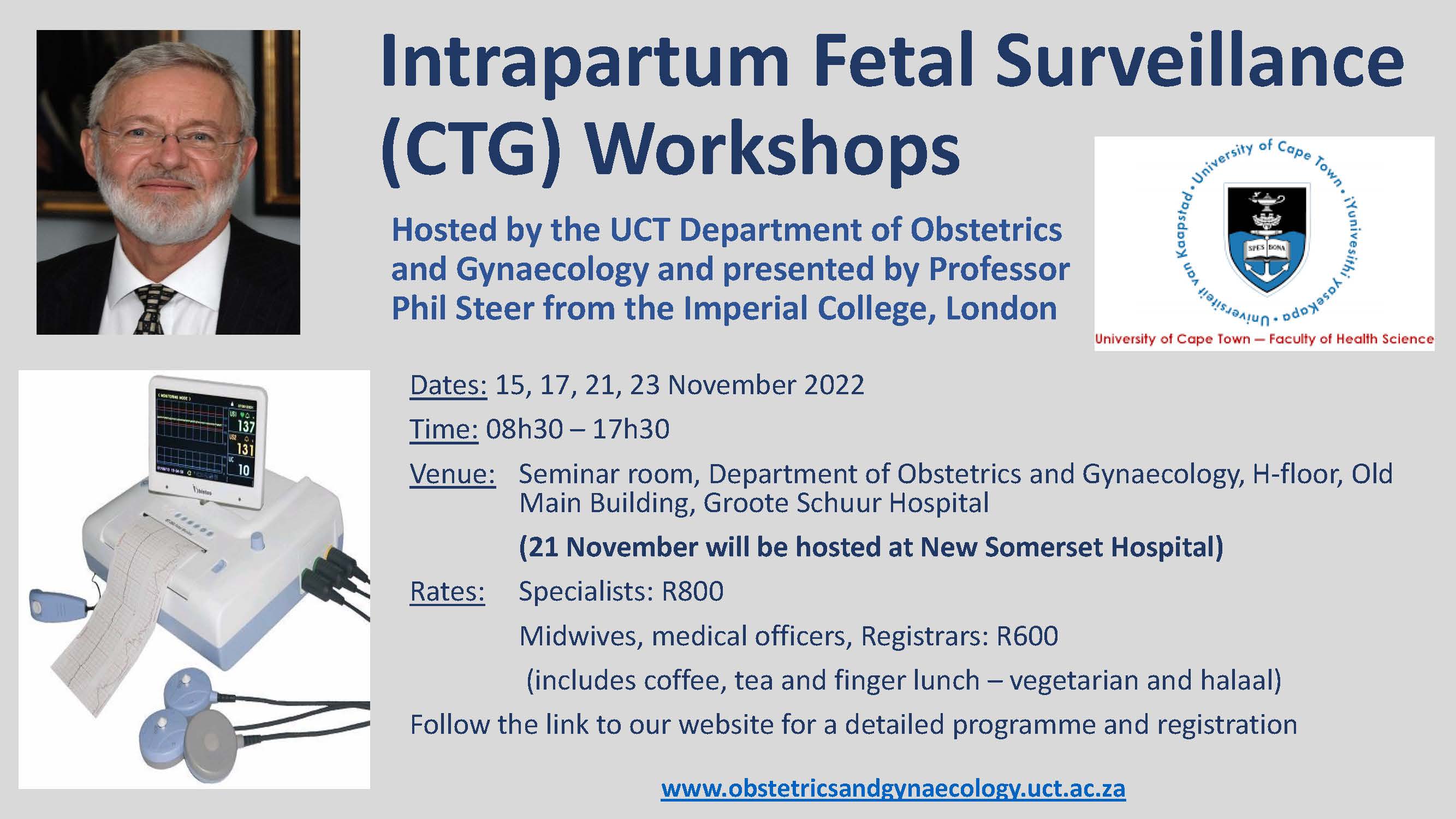
Professor Phil Steer is a regular visitor to our Department. He has a very distinguished career as an Obstetrician/Gynaecologist having previously chaired the Department of Obstetrics and Gynaecology at Chelsea and Westminster Hospitals in London. In addition, Prof Steer is an emeritus editor of the British Journal of Obstetrics and Gynaecology.
Prof Steer will once again be running his internationally renowned Intrapartum Fetal Surveillance (CTG) workshops in November 2022.
The dates are as follows: 15, 17, 21 and 23 November
The workshops will be hosted by the UCT Department of Obstetrics and Gynaecology on K floor, Old main building, Groote Schuur Hospital with the exception of the workshop on 21 November which will take place at New Somerset Hospital on the Foreshore.
Workshop fees: Specialists R800
Midwives, medical officers, Registrars R600
>Registration link<
Prof Steer will help participants construct a rational approach to intrapartum surveillance, with particular emphasis on the use of continuous fetal heart rate and uterine contraction monitoring (cardiotocography, CTG). He will cover the basics that are sometimes forgotten, but also pass on the many insights he has acquired over 45 years of involvement in intrapartum care.
The introduction will explain why the rise of litigation has emphasised the role of CTG monitoring as a key component of intrapartum care. Then in a session on technology, participants will be reminded how fetal monitors work, because failure to appreciate their limitations is a common cause of errors in the interpretation of fetal heartrate recordings. The next session will review fetal pathophysiology, in particular how hypoxia, hypoxaemia, acidosis, and asphyxia are defined, and their interrelationships, especially in the context of fetal growth restriction.
The following session will present a systematic approach to the analysis of fetal heart rate tracings, emphasising how to recognise artefact, and illustrating both the common and the more unusual abnormalities encountered. There will then be an explanation of how clinical features of concern (in particular, fetal growth restriction, meconium and pyrexia) influence CTG interpretation, and explain how changes in the fetal heartrate should be interpreted in the presence of these stressors. Recent trials such as INFANT and studies such as ‘Each Baby Counts’ have emphasised the vital importance of taking into account risk factors when interpreting fetal heart rate traces.
After lunch there will be an hour long session where participants discuss traces and case histories in small groups, followed by group debriefing.
Following this there will be session on adjunctive technologies, including FBS/pH, lactate, and STAN (ST segment monitoring). This will be followed by a discussion on the safe use of oxytocin.
The workshop will finish with a description of a potential new approach to the organisation of intrapartum surveillance being piloted by the RCOG and RCM.